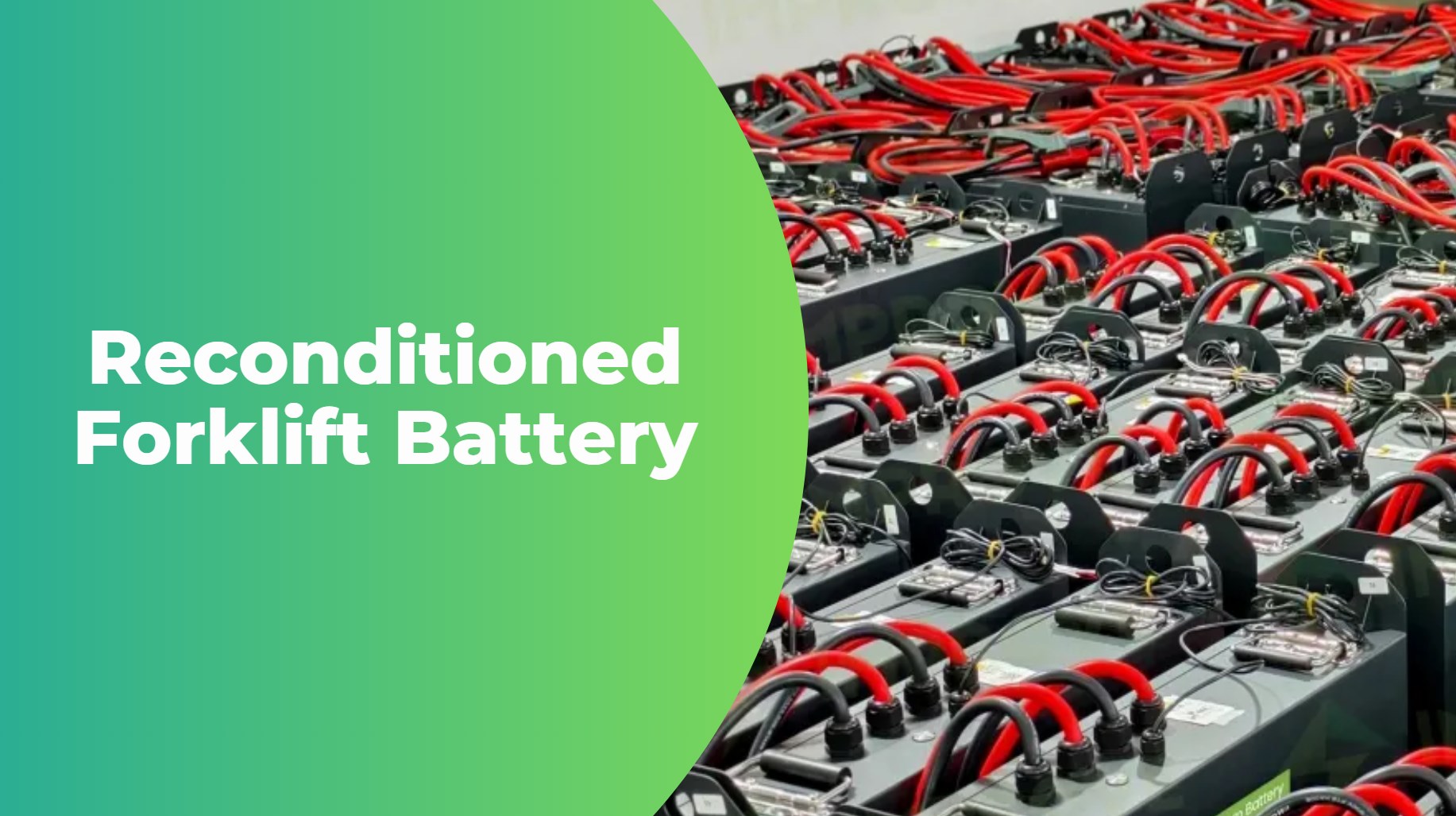In today’s industrial landscape, reconditioned forklift batteries have emerged as a compelling alternative to new batteries, offering a range of benefits that cater to both cost efficiency and environmental sustainability. This article delves into what reconditioned forklift batteries are, their advantages, and key considerations for businesses looking to make an informed decision.
Reconditioned forklift batteries provide a cost-effective alternative to new batteries while minimizing environmental impact. They undergo thorough testing to ensure reliability and can offer similar performance levels at a reduced price compared to new units.
What Are Reconditioned Forklift Batteries?
Reconditioned forklift batteries are essentially used batteries that have undergone a refurbishing process to restore their capacity and performance. The reconditioning process typically involves several critical steps:
Wholesale lithium golf cart batteries with 10-year life? Check here.
- Testing: The initial step includes a thorough examination to assess the battery’s current condition and capacity. This testing ensures that only batteries with the potential for successful refurbishment proceed to the next stage.
- Repair and Replacement: Damaged or worn-out components, including cells or connectors, are either repaired or replaced. This step is crucial for restoring the battery’s functionality and extending its lifespan.
- Recharging and Conditioning: The battery is fully charged and conditioned to meet performance standards. This process helps in achieving optimal operational efficiency and reliability.
- Capacity Guarantee: Many reconditioned batteries come with a guarantee that they will retain a significant portion of their original capacity, often around 85%. This ensures that users receive a battery that performs close to its original state.
Benefits of Reconditioned Forklift Batteries
Cost Savings: One of the most significant advantages of reconditioned forklift batteries is their cost-effectiveness. They are generally much cheaper than new batteries, providing an attractive option for businesses looking to reduce operational expenses without compromising on performance.
Environmental Impact: Opting for reconditioned batteries aligns with sustainability efforts. By choosing reconditioned batteries, businesses contribute to reducing waste and minimizing the environmental costs associated with the production of new batteries.
Want OEM lithium forklift batteries at wholesale prices? Check here.
Warranty: Many suppliers offer warranties on reconditioned batteries, which provides peace of mind regarding their reliability and performance. This warranty often covers a substantial period, ensuring that businesses are protected against potential issues.
Quick Availability: Reconditioned batteries are often available more quickly than new ones. New batteries can have longer lead times due to manufacturing processes, whereas reconditioned batteries may be readily available, reducing downtime in critical operations.
Second Life for Old Batteries: Businesses can send their used batteries for reconditioning, effectively giving them a second life. This process allows companies to recycle and extend the life of their existing equipment, promoting a circular economy.
Considerations
Performance: While reconditioned batteries offer good performance, they may not match the capabilities of brand-new batteries. It is essential to verify the battery’s capacity and condition before purchase to ensure it meets operational needs.
Supplier Reputation: Selecting a reputable supplier is crucial when opting for reconditioned batteries. Choose suppliers who provide detailed information about the reconditioning process and offer warranties. This ensures that the batteries have been adequately refurbished and are reliable.
Maintenance Needs: Although reconditioned batteries require less maintenance compared to lead-acid batteries, they still need regular checks to ensure optimal performance. Regular maintenance helps in identifying and addressing potential issues before they impact operations.
Conclusion
Reconditioned forklift batteries offer a practical solution for businesses aiming to balance cost savings with environmental responsibility. By understanding the benefits and carefully considering the potential limitations, companies can effectively incorporate reconditioned batteries into their operations. Choosing a reputable supplier and verifying the condition of the battery are key steps in ensuring a successful investment in reconditioned technology.
In summary, reconditioned forklift batteries provide a viable, economical, and eco-friendly option for maintaining reliable power sources in industrial settings. Their ability to offer significant cost savings, coupled with environmental benefits and quick availability, makes them an attractive choice for modern businesses.
FAQs
Forklift Battery Pack: A Comprehensive Guide
Recondition Forklift Battery: A Comprehensive Guide
Reconditioned Forklift Battery: An Economical and Eco-Friendly Solution
Used Forklift Battery: A Comprehensive Guide
Lithium Forklift Batteries: The Future of Material Handling
The Future of Electric Forklift Batteries: Innovations and Trends
Understanding 24V Forklift Batteries: A Comprehensive Guide
36 Volt Forklift Battery: A Comprehensive Overview
Understanding 12V Forklift Batteries: A Comprehensive Guide
A Comprehensive Guide to Forklift Batteries: Types, Advantages, and Considerations
Understanding the Types of Forklift Batteries: A Comprehensive Guide






